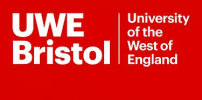As businesses start to emerge from furlough, they need to plan for the future. Decisions made over the next few months will have an impact on company survival, and employee’s lives. For well-known corporate brands, the outcome of how they treat their people will be reported on, discussed and judged.
Companies who sensitively manage change in the workplace will be in a much stronger position once the economy rebounds, as they will have carried their customer and employee loyalty with them through the crisis. Treating employees fairly has a direct impact on employee behaviours such as productivity and commitment. It bolsters corporate reputation, affects the ability to attract top talent, and increases job satisfaction and retention. Cost reductions can still be achieved by job losses and restructures, but these can be implemented in an honest, fair and considered way, and supported by a well-planned, legally compliant framework.
The economic consequences will start to become the next reality and it is unrealistic to expect that job losses can be prevented. Businesses will need to reduce costs and respond to the weakened market in an agile way in order to survive. Companies who need to restructure and make redundancies should follow process. But they should endeavour to make these changes in a socially responsible and compassionate way, as apart from being the “right” thing to do, it will have a positive payback. There is a fine balance between making necessary workforce reductions and being opportunistic and ruthless, and this applies to treatment of the employees who leave, as well as the ones who stay.
People will remember the corporate villains and heroes from these times. They might even feature as case studies for future Business students. Challenging times require challenging decisions – and at this moment many companies are on the brink of having to make these difficult calls. But despite the gloom of tricky times ahead, the economy will rebound. We are a resilient species, with generally a positive outlook. So short term actions should consider the knock-on effect that may be felt longer term.
The companies who use Coronavirus to slash terms and conditions by “firing and re-hiring” despite robust underlying financials show that they have lost the balance between short term shareholder satisfaction and investing in a healthy workforce for long term growth. Such a ruthless approach can severely taint the company’s brand. People are smart, and in this world of instant communication, how a company treats its employees can go viral faster than the slickest PR campaign, with opinions, and even petitions putting a brand into critical failure. “If they can treat their staff like that then…”
To manage change in a responsible way, leaders should carefully plan all stages of the change process. Take advice and ensure you follow the legal process, arrange individual consultations, train your managers to be compassionate, to be fair, and ensure communication is clear throughout the organisation. Be aware of the personal impact of redundancies and offer support. And for the remaining employees, understand that morale might be low, so communicate in an honest and open way so they become engaged with the journey ahead.
Compassion is good for your brand and should be part of any people management culture. It’s not mutually exclusive to cost cutting. By putting it at the forefront of everything they do, organisations that need to make and manage change in the coming weeks and months can emerge from the crisis with an enhanced corporate reputation and an engaged and motivated workforce as well as a flourishing business.
Suzanne Easton, Ibex Gale














































